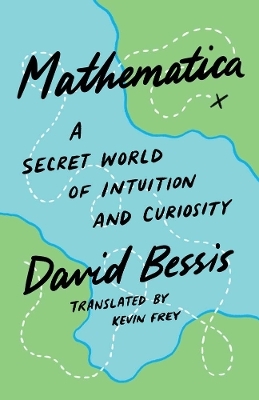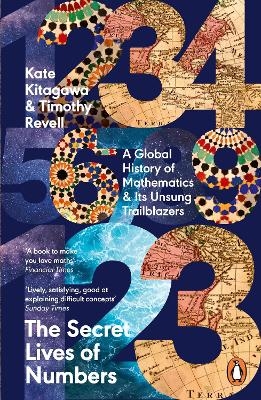
Mathematical Time Capsules
Mathematical Association of America (Verlag)
978-0-88385-187-6 (ISBN)
- Keine Verlagsinformationen verfügbar
- Artikel merken
Mathematical Time Capsules offers teachers historical modules for immediate use in the mathematics classroom. Relevant history-based activities for a wide range of undergraduate and secondary mathematics courses are included. Readers will find articles and activities from mathematics history that enhance the learning of topics typically associated with undergraduate or secondary mathematics curricula. Each capsule presents one topic, or perhaps a few related topics, or a historical thread that can be used throughout a course. The capsules were written by experienced practitioners to provide other teachers with the historical background, suggested classroom activities and further references and resources on the subject addressed. After reading a capsule, a teacher will have increased confidence in engaging students with at least one activity rich in the history of mathematics that will enhance student learning of the mathematical content of the course.
Dick Jardine is Professor at Keene State College. His last dozen publications (journal articles, book chapters and the MAA Notes volume From Calculus to Computers) have focused on undergraduate mathematics teaching and learning, with emphasis on the use of the history of mathematics in teaching mathematics. Amy Shell-Gellasch is Assistant Professor of Mathematics at Beloit College, Wisconsin. Her focus is the history of mathematics and its uses in teaching.
Preface; Part I: 1. The sources of algebra Roger Cooke; 2. How to measure the Earth Lawrence D'Antonio; 3. Numerical solution of equations Roger Cooke; 4. Completing the square through the millennia Dick Jardine; 5. Adapting the medieval 'rule of double false position' to the modern classroom Randy K. Schwartz; 6. Complex numbers, cubic equations and sixteenth-century Italy Daniel J. Curtin; 7. Shearing with Euclid Davida Fischman and Shawnee McMurran; 8. The mathematics of measuring time: the sinking-bowl water-clock in India Kim Plofker; 9. Clear sailing with trigonometry: navigating the seas in fourteenth-century Venice Glen Van Brummelen; 10. Copernican trigonometry Victor Katz; 11. Cusps: horns and beaks Robert E. Bradley; 12. The latitude of forms area and velocity Daniel J. Curtin; 13. Descartes' approach to tangents Daniel J. Curtin; 14. Integration a la Fermat Amy Shell-Gellasch; Interlude: 15. Sharing the fun: student presentations Amy Shell-Gellasch and Dick Jardine; 16. Web searches and scavenger hunts: letting students dig up history Betty Mayfield; 17. Newton vs. Leibniz in one hour! Betty Mayfield; Part II: 18. Connections between Newton, Leibniz, and Calculus I Andrew B. Perry; 19. A different sort of calculus debate Vicky Williams Klima; 20. A symbolic history of the derivative Clemency Montelle; 21. Leibniz's calculus (real retro calc) Robert Rogers; 22. An 'impossible' problem, courtesy of Leonhard Euler Homer S. White; 23. Multiple representations of functions in the history of mathematics Robert Rogers; 24. The unity of all science: Karl Pearson, the mean, and the standard deviation Joe Albree; 25. Finding the greatest common divisor and more… J. J. Tattersall; 26. Negativo-affirmative figures and an alternative technique for multiplying two numbers J. J. Tattersall; 27. Origins of the integrating factor Dick Jardine; 28. Euler's method in Euler's words Dick Jardine; 29. Newton's differential equation y/x=1-3x+y+xx+xy Huseyin Kocak; 30. Roots, rocks, and Newton–Raphson algorithms for approximating 3000 years apart Clemency Montelle; 31. Plimpton 322: the Pythagorean Theorem, more than a thousand years before Pythagoras Daniel E. Otero; 32. Thomas Harriot's Pythagorean Triples: could he list them all? Janet L. Beery; 33. Amo, Amas, Amat! What's the sum of that? Bernoulli's account of the divergent harmonic series in Latin Clemency Montelle; 34. The harmonic series: a primer Adrian Rice; 35. Learning to move with Dedekind Fernando Q. Gouvea.
| Reihe/Serie | Mathematical Association of America Notes |
|---|---|
| Verlagsort | Washington |
| Sprache | englisch |
| Maße | 215 x 279 mm |
| Gewicht | 720 g |
| Themenwelt | Schulbuch / Wörterbuch |
| Mathematik / Informatik ► Mathematik ► Geschichte der Mathematik | |
| ISBN-10 | 0-88385-187-3 / 0883851873 |
| ISBN-13 | 978-0-88385-187-6 / 9780883851876 |
| Zustand | Neuware |
| Haben Sie eine Frage zum Produkt? |
aus dem Bereich


